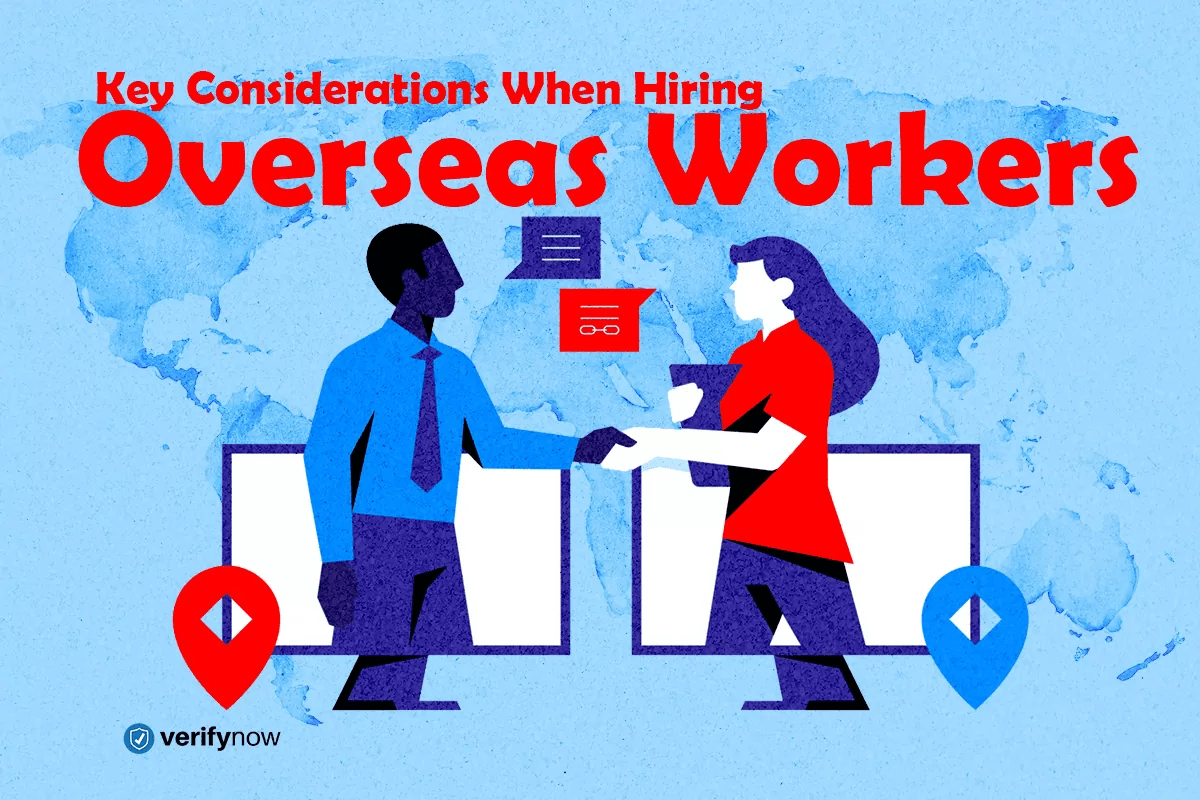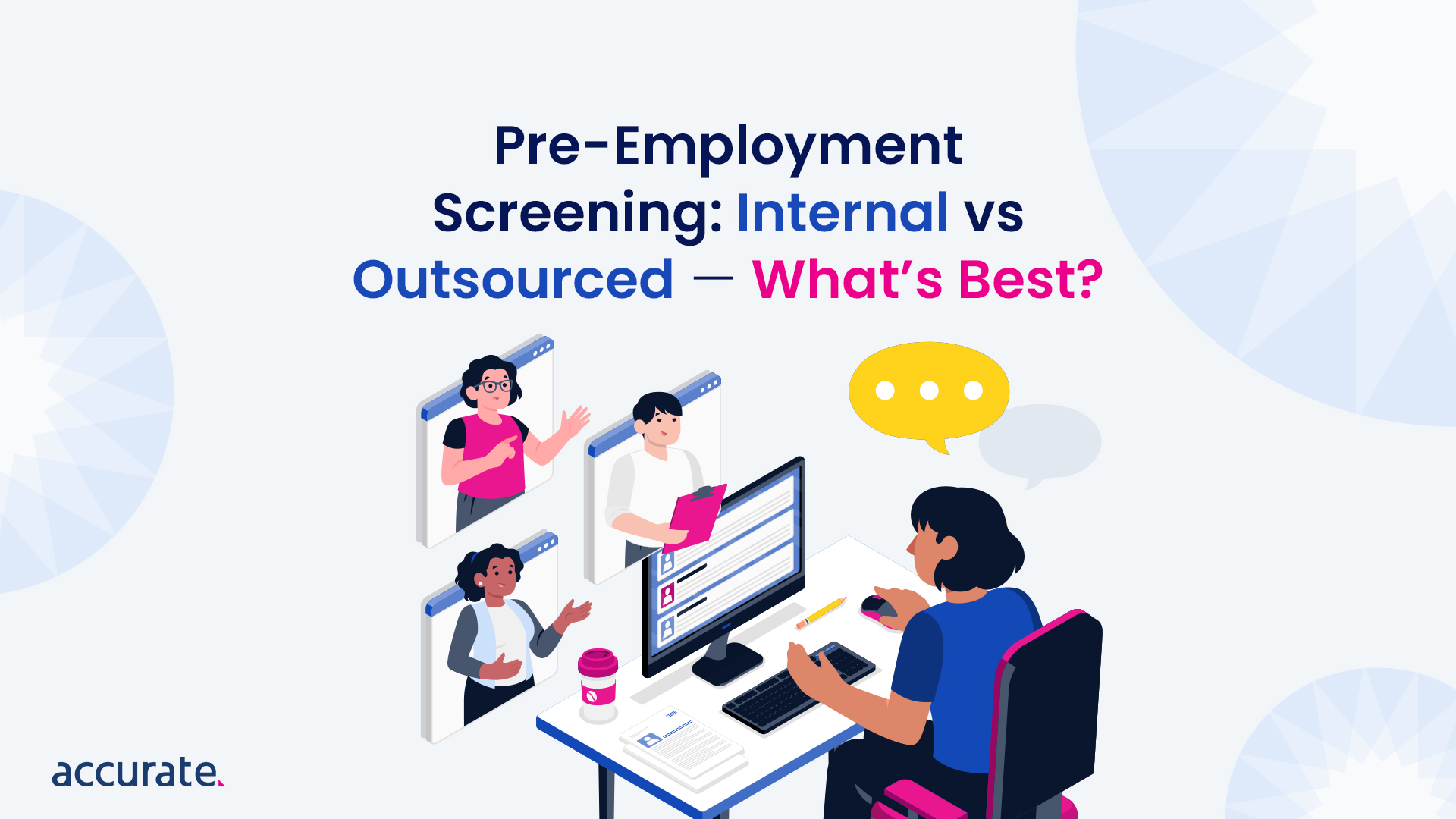In an increasingly globalised world, hiring overseas workers has become a strategic imperative for businesses of all sizes. While multinational corporations have been leveraging the global talent pool for years, the trend has now permeated businesses across the spectrum.
The shift towards remote working, catalysed by recent global events, has further blurred geographical boundaries, making it commonplace for Australian companies to have team members worldwide.
The reasons for this shift are manifold.
Firstly, the talent crunch in Australia has led businesses to look beyond national borders to fill key roles. Secondly, the rise of remote working has made it logistically feasible to have a dispersed workforce. Lastly, hiring overseas can often lead to reduced labour costs, making it an economically attractive proposition.
However, while the benefits of hiring overseas workers are clear, it’s not a decision to be taken lightly. There are several key considerations that businesses need to bear in mind to ensure a smooth and successful hiring process.
So, here’s what you need to keep in mind.
Understanding the Different Types of Overseas Workers
When we talk about ‘overseas workers’, you’ll need to understand that this term encompasses a broad range of scenarios.
Essentially, an overseas worker could be:
- Foreign Nationals Working in Australia: These are individuals from other countries who are living and working in Australia under a relevant visa. They might be international students, working holiday visa holders, or skilled workers sponsored by an Australian company.
- Remote Workers Based Overseas: These are residents of other countries who live in their home country and work remotely for an Australian organisation. This category has seen significant growth with the rise of remote working practises.
- Australian Expats Working Overseas: These are Australian citizens living as ex-pats in other countries but still working for Australian organisations. They could be working remotely or on an international assignment.
Each of these scenarios presents different considerations, particularly in terms of legislation. For example, if you’re employing a non-citizen already in Australia, you need to ensure they have the right visa to work.
On the other hand, if you’re hiring remote workers based overseas, you must comply with the relevant workplace legislation in Australia and the jurisdiction where the staff are located.
For Australian expats working overseas, considerations might include how to provide continuing employment benefits such as health insurance, the Medicare levy, salary continuation insurance, or death or total permanent disablement (TPD) insurance.
Benefits of Hiring International Employees
Hiring international employees can bring a wealth of benefits to your organisation. Here are eight key advantages:
1. Diverse Skill Sets and Perspectives
International employees bring diverse skills, experiences, and perspectives to the table. This diversity can enrich your team’s problem-solving abilities and decision-making processes, leading to more innovative and effective solutions.
2. Language and Cultural Competence
International employees often possess language skills and cultural knowledge that can be invaluable, especially if your business operates in or is looking to expand into international markets. They can help navigate cultural nuances and communicate effectively with clients and partners from different backgrounds.
3. Global Market Knowledge
International employees can provide insights into global markets, consumer trends, and business practices in their home countries. Having this knowledge can be instrumental in shaping your global strategy and understanding international competitors.
4. Expanded Networks
International employees can help expand your business networks. They may have contacts in industries, governments, or communities overseas that can open doors for partnerships, collaborations, or new business opportunities.
5. Enhanced Creativity and Innovation
The diverse backgrounds and experiences of international employees can foster creativity and innovation. Different perspectives can spark new ideas, and challenge the status quo in your products, services, or processes.
6. Language Support and Cultural Adaptation
International employees can provide language support, helping to translate documents, interpret meetings, or localise content. They can also guide your team in adapting products, services, or marketing campaigns to resonate with different cultures.
7. Increased Cultural Diversity and Inclusion
Hiring international employees can enhance your workplace’s cultural diversity. A diverse workforce can foster a more inclusive environment, improve employee engagement, and enhance your company’s reputation as a diverse and inclusive employer.
8. Global Talent Pool
Lastly, hiring international employees allows you to tap into the global talent pool. It can be particularly beneficial if you need help finding the skills you need locally. You can access a wider range of talent and expertise by looking beyond national borders.
Employer Obligations When Hiring International Employees
When hiring international employees, businesses must meet several obligations to ensure compliance with Australian and international laws:
| Employer Obligations | Description |
| Visa Verification | Employers need to verify that their employees have the legal right to work in their home country. |
| Compliance with Workplace Legislation | Adherence to relevant workplace legislation in both Australia and the jurisdiction where remote staff are located is a must for employers. |
| Employee Entitlements | Just like other workers in Australia, international employees, including remote workers, are entitled to the same workplace rights. |
| Health and Safety Obligations | Ensuring the health and safety of all employees, regardless of their location, is a key responsibility for employers. |
| Tax and Superannuation Obligations | Regardless of where their remote workers are based, employers must meet their usual payroll and tax obligations. |
| Insurance Requirements | Appropriate insurance coverage for employees is another important consideration for employers. |
| Data Privacy and Security | Protecting any data or information shared with remote workers is a critical obligation for employers. |
As always, seeking independent legal advice is advisable to ensure a full understanding of your obligations when hiring international employees.
Are International Workers Covered by Australian or International Employment Laws?
The coverage of international workers by Australian or international employment laws is a multifaceted issue that hinges on several factors.
One key determinant is the location of work. International workers who are physically present and working in Australia under a valid work visa are typically protected by Australian employment laws. In other words, they are entitled to the same rights and protections as Australian workers, including minimum wage requirements, working conditions, and health and safety regulations.
However, the situation can be different for remote workers who are based overseas. In these cases, the applicability of Australian employment laws can be less clear.
While some aspects of Australian law may still apply, such as anti-discrimination provisions, the employment laws of the worker’s home country often play a significant role. Generally, this can include laws related to working hours, leave entitlements, and termination procedures.
Moreover, if an Australian company has a physical presence in the country where the worker is based, such as a branch or subsidiary, the laws of that country are likely to apply.
In some cases, the employment contract terms can also influence which laws apply. For example, the contract may specify that the laws of a particular jurisdiction govern it.
Given the complexity of this issue, it’s always advisable for employers to seek legal advice when hiring international workers. This will help ensure they understand their obligations and can provide their employees with the correct rights and protections.
Background Checks For International Workers
Just as with domestic hires, conducting thorough background checks on international workers is a necessary step in the hiring process. These checks help ensure that potential employees are reliable, trustworthy, and suitable for the role.
They can also help mitigate risks associated with fraudulent qualifications, undisclosed criminal records, and other potential issues.
However, carrying out background checks on international workers can present unique challenges. Differences in legal systems, data privacy laws, and record-keeping practises can make obtaining accurate and comprehensive information about a candidate’s background difficult.
Despite these challenges, you must remember that the need for thorough screening applies equally to international workers. In some cases, the need may be even greater due to the additional risks associated with cross-border employment.
This is where Accurate Background can help.
Accurate Background has the capability to carry out police checks on residents of over 150 countries. This means that even if your potential hire currently resides overseas, you can still understand their background comprehensively.
Key Takeaways
Hiring overseas workers offers businesses access to a diverse talent pool, fresh perspectives, and potential cost savings. However, it also brings unique challenges, including understanding the legal implications of different types of overseas workers and meeting various employer obligations.
Conducting thorough background checks is a crucial part of this process, ensuring the integrity and reliability of international hires. Services like Accurate Australia can assist.
Contact us today to find out more about how we can help you.



